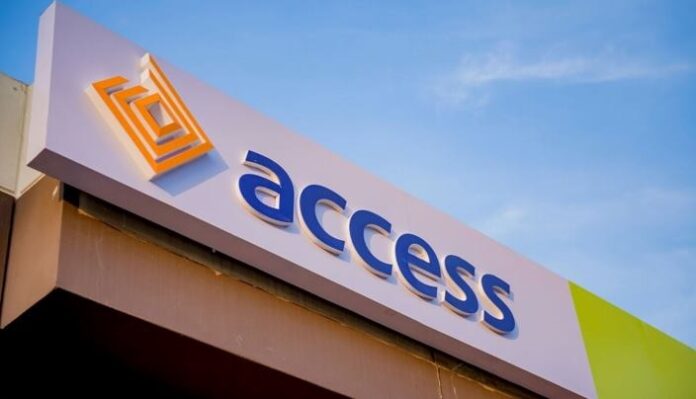By Jeph Ajobaju, Chief Copy Editor
Multiple millions of naira separate FUGAZ, the five biggest banks in Nigeria by market capitalisation – FBN Holdings, UBA, Guaranty Trust Bank, Access Bank, and Zenith Bank – despite the perception that the terrain is cut throat competitive.
Shareholders expect profit on their investment and audited reported financials show their profitability even in the face of pandemic restrictions.
The pandemic impacted their plans to roll out digital services earlier in the year but also worked in their favour as people increasingly rely on mobile banking transactions to avoid banking hall queue and contracting Covid-19.
Methodology
Nairametrics, which analysed the results,defines Gross Earnings is an aggregation of all income sources received by a bank minus operating expenses, interest expense, or loan impairments.
It determines how well a bank has performed in sweating all assets and resources available to make money.
But the bank with the most gross earnings may not be the most profitable. Profitability is determined by how well a bank manages operating costs, loan losses, and taxes.
Access Bank
Nigeria’s largest bank by assets and customer base reported a 13.6 per cent increase in gross earnings from N396.7 billion in H1 2020 to N450.6 billion in H1 2021 – by far the best performing of all the banks reviewed.
Access Bank achieved this feat partly by increasing its loan book from N3.6 trillion to N3.9 trillion.
However, the most significant impact on gross earnings came from commission and fees which rose to N58.7 billion from N40.5 billion – leveraging its asset base to drive revenue growth.
But while Access Bank raked in billions in gross earnings its loan losses remained high at N28.6 billion in H1 2021 compared to N29.6 billion in H1 2020, a major strain on profitability.
PricewaterhouseCoopers’ independent auditors noted increased provisioning by the bank for loans that could prove unsustainable in the future, as this may limit its upside.
A total N10.7 billion has been allocated by the board of directors as dividends to shareholders for H1 2021.
UBA
Ggross earnings of Nigeria’s third most profitable bank rose from N300.6 billion in H1 2020 to N316 billion in H1 2021, and assets rose from N7.7 trillion to N8.3 trillion.
This is one of the few banks that recorded higher gross earnings YoY.
UBA had a much lower loan impairment going from N7.8 billion H2 2020 to N4.1 billion in H1 2021.
Customer deposits crossed the N6 trillion mark as well, growing 7.4 per cent to N6.1 trillion compared to N5.7 trillion as of the fourth quarter of 2020 (Q4 2020).
Net commissions and fees income grew from N38.5 billion to N45.7 billion.
UBA board of directors has declared an interim dividend of 20 kobo per share for every ordinary share of 50 kobo each held by shareholders as per its practice of paying interim and final cash dividends.
Zenith Bank
Zenith Bank’s gross earnings dipped 0.15 per cent from N346.09 billion in H1 2020 to N345.6 billion in H1 2021.
Interest Income declined from N216.9 billion in H1 2020 to N203.9 billion. Net commission and fees rose from N33.5 billion to N47.6 billion. This helped mitigate the drop in interest income.
Zenith had a higher net interest income in H1 2021 compared to H1 2020.
It grew customer deposits to N5.7 trillion from N5.3 trillion in Q4 2020.
Zenith Bank Company Secretary Michael Out said in a statement that shareholders whose names appear in the register of members on September 10, 2021 will receive an interim dividend of 30 kobo for each share of N50.
FBNH
FirstBank, Nigeria’s oldest bank, recorded gross earnings of N291.2 billion in H1 2021 (-1.7 per cent year on year, YoY).
A 22 per cent decline in Interest Income caused by a 56 per cent drop in Investment Securities Income led to a slight earnings drop.
FBNH earned significant revenue from commissions which rose from N46.7 billion to N57.3 billion helping it compensate for the lower income from interest on loans.
FBNH also showed strong growth in net earnings from commission and fees, going from N46.7 billion to N57.3 billion, one of the highest in the sector (only just behind Access Bank).
Operating expenses surged up 9.6 per cent y/y, as all major contributory lines spiked – personnel expenses (+3.4per cent y/y to N51.24 billion), AMCON levy (+35.4 per cent y/y to N30.68 billion), and NDIC premium (+9.4 per cent y/y to N6.81 billion).
A significant drop in FirstBank’s Cost to Income ratio falling to 77 per cent in H1 2021 one of the best it has had.
FBN Holding Group Managing Director Director, Urum Eke, explained that macroeconomic conditions remain challenging because of the pandemic and low interest rates.
But FBN Holdings is confident that it will continue to deliver innovative solutions that will enrich customer experiences as well as deepen financial inclusion.
GTCO
Guaranty Trust Holding Company (GTCO) or GTBank, Nigeria’s most valuable bank by market value and second most profitable bank, reported a 7.65 per cent decline in gross earnings.
As published in its audited report for half year ended on June 30 (H1 2021), gross earnings fell from N225.14 billion in H1 2020 to N207.91 billion in H1 2021.
The reason for the decline was because net interest income dropped 16.11 per cent from N127.62 billion in H1 2020 to N107.06 billion in H1 2021.
GTCO’s augmented the drop from receiving higher commissions and fees compared to the year before but it was not enough.
To make matters worse, its operating expenses also rose in H1 2021, affecting profit. Profit before tax (PBT) reduced by N166.58 million to N93.06 billion, and earnings per share from N3.32 to N2.79.
GTCO is a consistent performer so it is expected the bank will bounce back by full year 2021 (FY 2021).
It has just adopted a HoldCo structure which needs time to reflect on all-round earning capacity.













